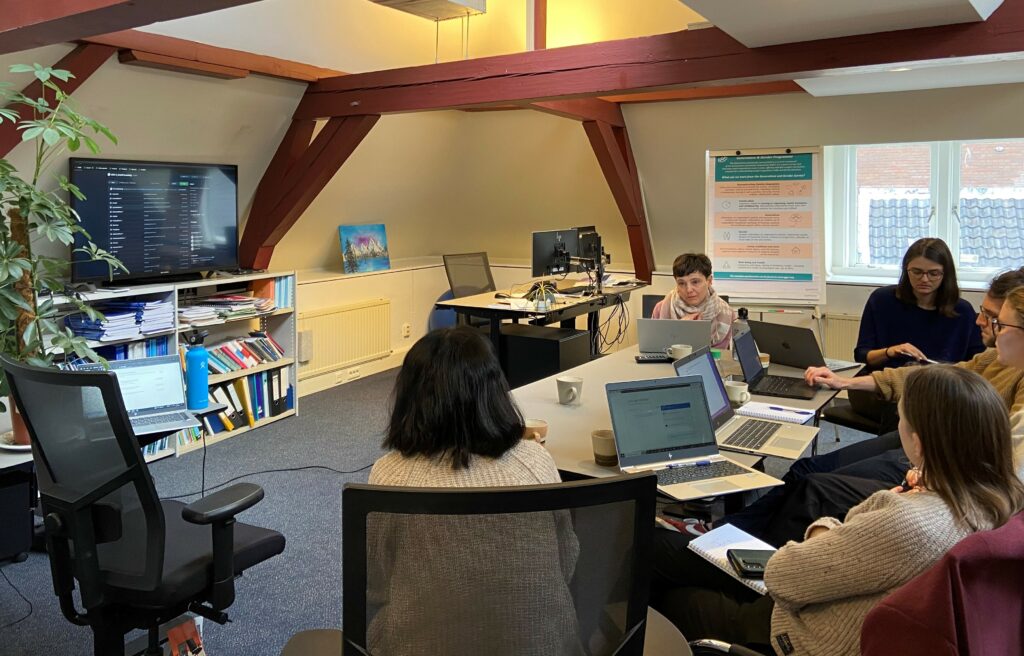
In February, the GGP hosted a collaborative two-day workshop with our colleagues from INED. This workshop served as a platform to delve into the operational aspects of the GGS-II, with a specific focus on fieldwork methodologies and post-fieldwork procedures in preparation for the upcoming GGS-II Wave 2.
The focus of the first day revolved around post-fieldwork operations. The GGP Central Hub provided insights into our established data processing workflow, complemented by INED’s comprehensive overview of their data documentation practices. This collaborative exchange led to meaningful discussions on optimizing the integration of our workflows for the upcoming second wave of the survey.
The second half of the day delved into the structural considerations of GGS-II Wave 2. Additionally, we discussed our insights from country-led data collection and how to best harmonise these initiatives with the GGS standards. On the second day, the morning session started with an exploration of internal workflows, featuring an introduction to our new project management tool and a comprehensive guide to using GitHub for version control to make our collaboration more transparent and reproducible. The afternoon session concentrated on fieldwork-related topics. This included an in-depth introduction to fieldwork activities and the creation of a standardized template for documenting translations and other fieldwork activities. An essential aspect covered was the versioning process for the Core Questionnaire in Wave 2.
In summary, the workshop enhanced collaboration between teams and addressed operational challenges for the execution of GGS-II Wave 2.

In February, the GGP hosted a collaborative two-day workshop with our colleagues from INED. This workshop served as a platform to delve into the operational aspects of the GGS-II, with a specific focus on fieldwork methodologies and post-fieldwork procedures in preparation for the upcoming GGS-II Wave 2.
The focus of the first day revolved around post-fieldwork operations. The GGP Central Hub provided insights into our established data processing workflow, complemented by INED’s comprehensive overview of their data documentation practices. This collaborative exchange led to meaningful discussions on optimizing the integration of our workflows for the upcoming second wave of the survey.
The second half of the day delved into the structural considerations of GGS-II Wave 2. Additionally, we discussed our insights from country-led data collection and how to best harmonise these initiatives with the GGS standards. On the second day, the morning session started with an exploration of internal workflows, featuring an introduction to our new project management tool and a comprehensive guide to using GitHub for version control to make our collaboration more transparent and reproducible. The afternoon session concentrated on fieldwork-related topics. This included an in-depth introduction to fieldwork activities and the creation of a standardized template for documenting translations and other fieldwork activities. An essential aspect covered was the versioning process for the Core Questionnaire in Wave 2.
In summary, the workshop enhanced collaboration between teams and addressed operational challenges for the execution of GGS-II Wave 2.
The 7th GGP User Conference will take place on 13-15 September at the Warsaw School of Economics in Poland. Researchers working with data from the Generations and Gender Survey, the GGP Contextual Database, or the Harmonized Histories will present and discuss their most recent methodological approaches and empirical findings.
The GGP User Conference provides a platform for the exchange of ideas among existing and new GGP users, policymakers, and the research community at large. We especially encourage the submission of papers using data from recently conducted rounds of the GGS as well as papers providing new methodological insights. Moreover, we encourage papers using longitudinal or multi-country data.
The conference will be hybrid, allowing researchers to join us both online or in person in Warsaw. There is no fee for the conference, but places are limited. You can register before August 20th here:
Registration closed
If you have any questions regarding the conference, please direct them to ggp@nidi.nl
Scientific Committee: Olga Grünwald (NIDI), Pawel Strzelecki (SGH Warsaw School of Economics), Ivan Cipin (University of Zagreb)
| 14.30 – 15.30 | Registration / Coffee |
| 15.30 – 15.45 | Welcome |
| 15.45 – 17.00 | Keynote |
| 17.00 – 18.00 | Flash session on Survey Methods |
| 18.00 – | Small reception |
| 09.00 – 10.30 | Session 1: Fertility intention and crisis |
| 10.30 – 10.45 | Break |
| 10.45 – 12.00 | Flash session |
| 12.00 – 13.00 | Lunch |
| 13.00 – 14.00 | Session 2: Quality of Life |
| 14.00 – 14.15 | Break |
| 14.15 – 15.45 | Session 3: Fertility outcomes I |
| 15.45 – 16.00 | Break |
| 16.00 – 17.00 | Session 4: Fertility intention and realization |
| 17.00 – 17.30 | Poster session |
| 19.00 – | Dinner for presenter |
| 09.30 – 11.00 | Session 5: Family dynamics |
| 11.00 – 11.15 | Break |
| 11:15 – 12.45 | Session 6: Fertility intention |
| 12:45 – 13:00 | Closing |
| 13.00 – | Lunch |
Download the full program here
Download the Book of Abstracts here
The conference will take place at SGH Warsaw School of Economics (Szkoła Główna Handlowa w Warszawie), in the building C, Aula I. Address of the venue: al. Niepodległości 128, 02-554 Warszawa
More practical information is available here. If you have any practical questions, you can contact the local organizers at ggp@sgh.waw.pl
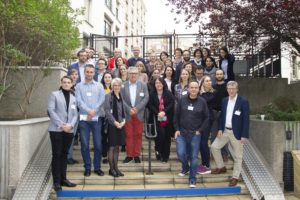
We had announced previously that the next meeting of the GGP Council would be held in Italy, in concert with the European Population Conference 2020 (which has now been cancelled). Due to the contingency measures to contain COVID-19, it was decided that the meeting will still take place on the same date but will be Online. It will be held, from 13:00-15:00 (Amsterdam time) on Wednesday, June 24, 2020.
The GGP Council meeting will be the occasion to discuss further with national teams their progress towards fielding the new GGS. The GGP Council meeting is also open to other national teams who have not yet considered the possibility of participating in the GGS2020.
Given the format of this meeting, we need to restrict participation to one person per national team. We therefore ask national teams to designate this representative and to inform the GGP Central Hub about the name of this person. Please also indicate if she/ he would like to make a short presentation during the meeting (presentations will be limited to 5 minutes) – please email ggp@nidi.nl before 1 June 2020.
Provisional agenda:
13:00: Welcome, adoption of minutes, adoption of agenda
13:10: Short presentation from the Central Hub about recent developments
13:30-14:45: National teams presentations (5 minutes each)
14h45: Q&A, conclusion and next meeting
We ask all national teams provide a brief update on the activities and progress in their country by 25 May. This is vital to help us track progress and monitor developments. You can fill out the report here:
To consult the minutes and documentation of the last meeting that took place in Paris in October 2019 please consult: http://www.unece.org/index.php?id=52229.
General queries may be directed to ggp@nidi.nl.
Ilya Kashnitsky will be running a two day workshop on visualizing life course data ahead of the GGP User Conference in Paris. The course will use R and the power of Tidyverse to produce stunning and impactful data visualizations of life course data. The workshop will use worked examples based on GGP data and will involve an interactive program. The workshop will take place at INED, and will start at 1 pm on Tuesday October 22 and is scheduled to end around 5 pm on the following day.
Participants are expected to bring their own laptops in order to participate and to pre-install the required R packages.
There is no fee for the course but you will need to cover your own travel and accommodation expenses. Thanks to our partners at IUSSP, we do have financing available for travel and accommodation for one participant who is an IUSSP member and from the Global South. The GGP may also finance a limited number of places. The deadline for application was 31st May and successful candidates will be informed by 14th June.
INED – Institut national d’études démographiques
133 Boulevard Davout
75020 Paris
France
The Generations and Gender Programme, in collaboration with INED and the IUSSP, is delighted to announce the 5th GGP Conference to be held 24-25 October 2019 at the Paris School of Economics. Here you can find the book of abstracts for all the presentations, oral and poster.
This international conference aims to bring together researchers working with data from the Generations and Gender Survey and invites them to present and discuss their most recent methodological approaches and empirical findings. The conference provides a forum for exchange of ideas among current as well as prospective GGP users, policy makers and the research community at large. There will also be a Data Visualization Workshop on 22-23 October, details of which can be found here.
View and download the full program!
An exceptional lineup of keynote speakers will bring valuable insights and offer their experitse on diverse topics including the impact of economic insecurity on fertility in Europe (Daniele Vignoli), demographic trends in post-socialist countries (Sunnee Billingsley), and relationship formation in the digital age (Michael Rosenfeld).
Daniele Vignoli, University of Florence, Italy
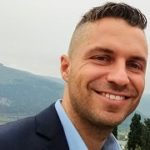
Daniele Vignoli is Full Professor of Demography at the University of Florence, where he teaches Demography, Social Demography, and Longitudinal Data Analysis. He coordinated national and international research projects. Currently, he leads an ERC Consolidator Grant on “Economic Uncertainty and Fertility in Europe”. His research interests address: family-related behaviors, comparative family demography, family life courses, and family events and subjective well-being.
Sunnee Billingsley, Stockholm University, Sweden
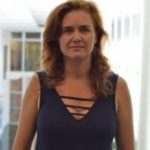
Sunnee Billingsley is Associate Professor (Docent) in Sociology at Stockholm University. She studies the effects of social stratification, social policy and social change on demographic patterns. Her research interests include: comparative and micro level analyses of fertility and mortality trends, demographic change in post- communist countries (Russia in particular). She is also studying the demographic effects of social mobility in Sweden, focusing on both mortality and fertility.
Michael Rosenfeld, Stanford University, California
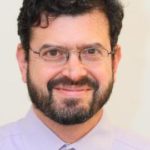
Michael Rosenfeld is Professor and Chair of Sociology at Stanford University, where he also teaches Changing American Family, and Intro to Data Analysis. He studies mating and dating, the Internet’s effect on society, family history and family law (especially as they relate to same-sex couples and their children). He is currently working on “How Couples Meet and Stay Together”, a longitudinal study of social life in the US, funded by the National Science Foundation.
Additional Information:
GGP User Conference
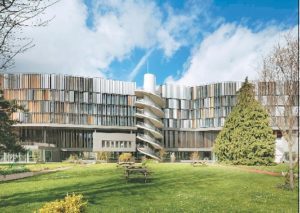 PSE – Paris School of Economics
PSE – Paris School of Economics
48 Boulevard Jourdan
75014 Paris
France
Council of Partners
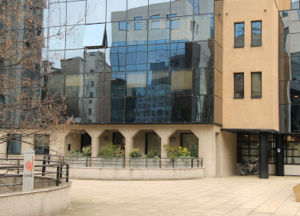 INED – Institut national d’études démographiques
INED – Institut national d’études démographiques
133 Boulevard Davout
75020 Paris
France
You can print your poster up to A0 format (1200mm height, 800mm width).
Parisian cruise on the River Seine: the Tennessee Boat – Itinerary
If you have any questions regarding the conference, please direct them to ggp@nidi.nl
For a short report on the conference and the data visualization workshop, see the newsletter of the IUSSP.
Scientific committee:
Tom Emery (NIDI), André Grow (MPIDR), Jennifer Holland (Erasmus), Ariane Pailhé (INED)
Fill the form below with your contact information to receive our monthly GGP at a glance newsletter.
